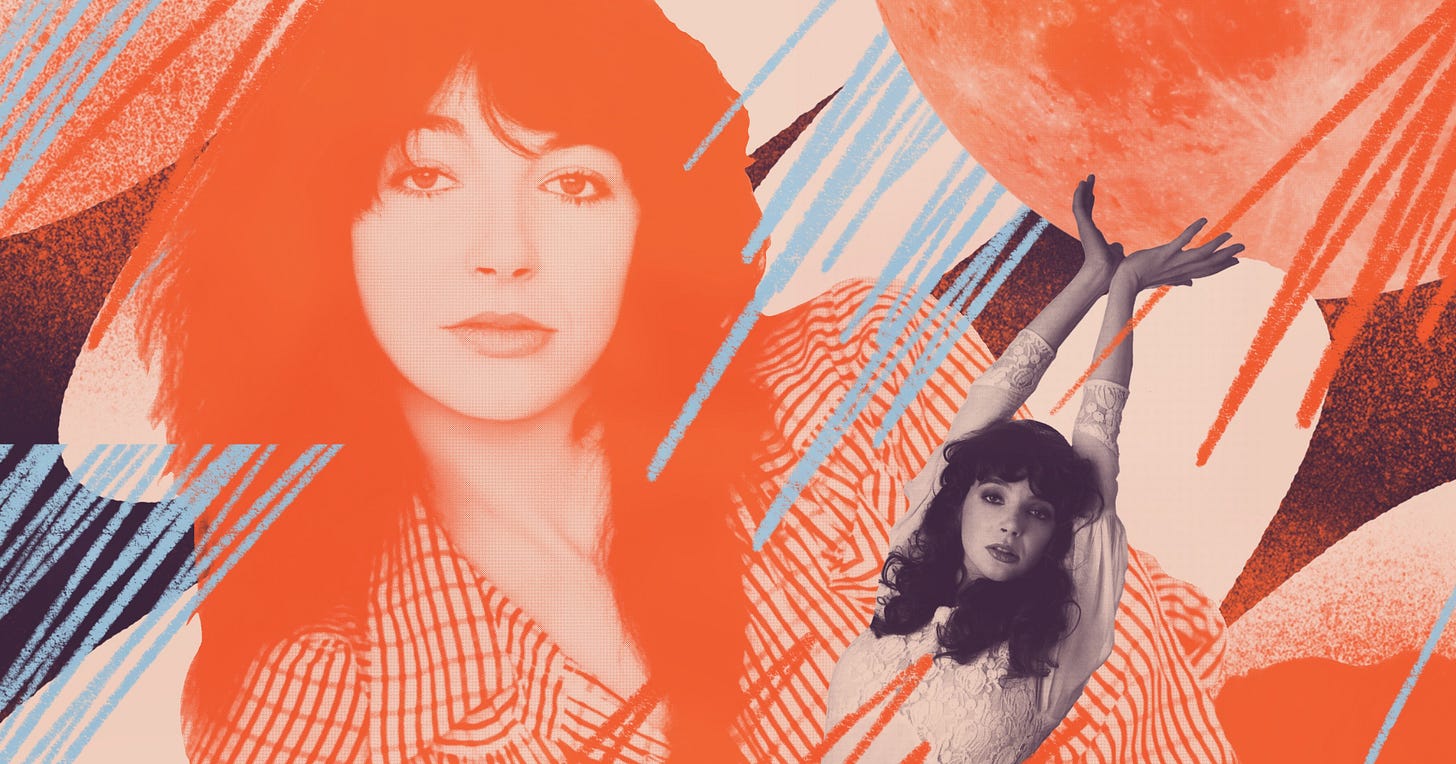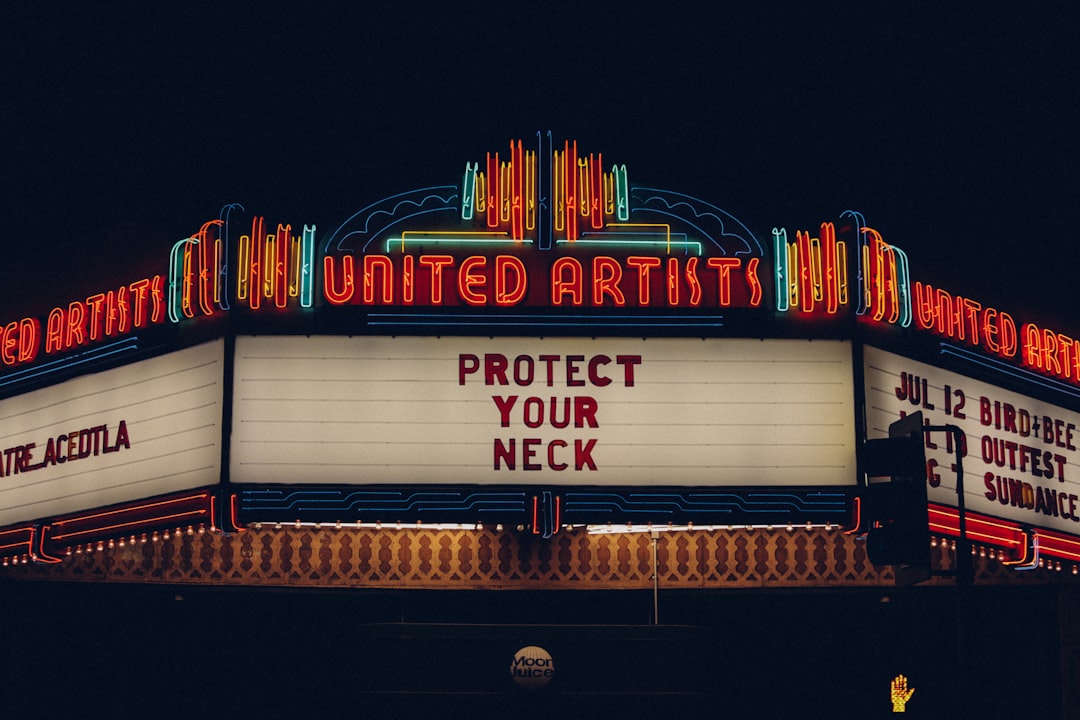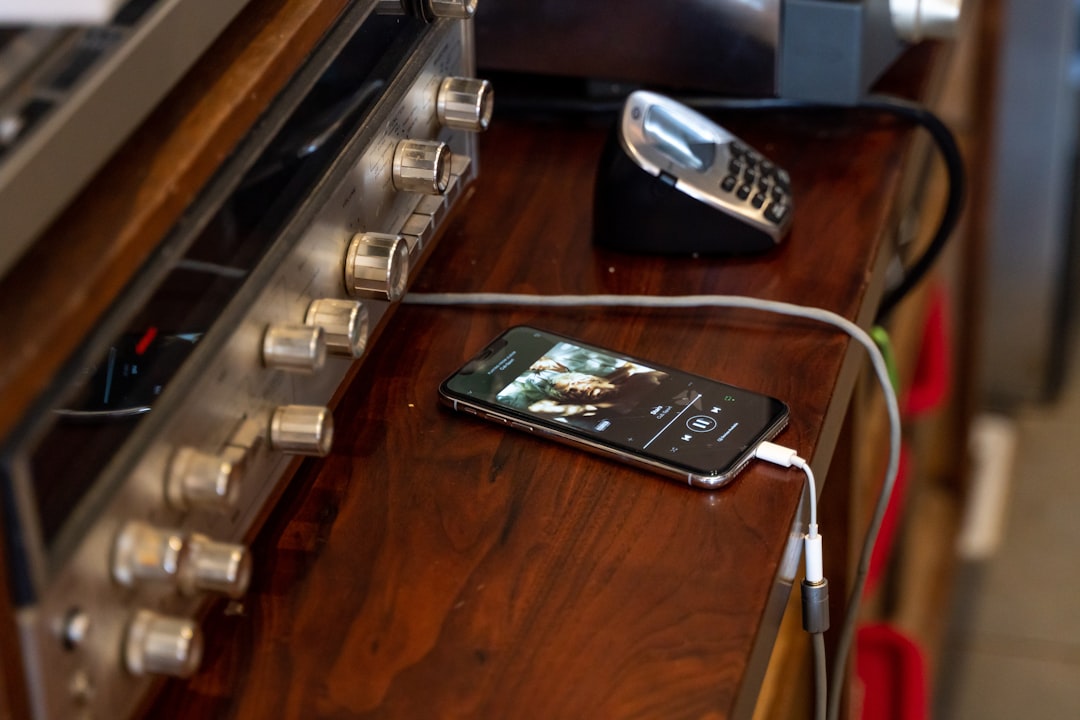Kate Bush entering the chat in 2022 has confused and delighted multiple generations of stans, young and old. Dominic Mohan checks in from London.
Dominic Mohan is an award-winning journalist, editor and broadcaster and Founder/CEO of media consultancy Dominic Mohan Media.

There are only two places from which the ethereal Kate Bush could have spawned — The British Isles or another world.
So it feels only fitting that one of Great Britain and Ireland’s long-standing national treasures has provided the haunting soundtrack to one of the year’s most memorable TV scenes in Stranger Things IV. It is a dark and troubling sequence, which sees the character Max coming face to face with the evil and frankly rather frightening Vecna in the twisted dimension that is the Upside Down, as her friends in the real world frantically try to save her.
This is achieved by slipping a cassette of Max's favourite song into a Walkman, which quite movingly brings her back to reality. That track is Kate’s thunderous 1985 anthem “Running Up That Hill (A Deal With God),” a lyrical masterclass that saucily addresses the concept of a man and a woman swapping roles during sex. It is a stroke of televisual genius, a feat only equaled by whosoever managed to get the track cleared by Kate. She rarely allows such frivolity.
And wow! Suddenly a whole new global generation is falling in love with Catherine Bush, born in 1958 in sleepy Kent, the Garden of England.
At the time of writing, “Running Up That Hill” has hit the Top Ten in the UK and the US, Kate’s first in the latter. Prices for the Hounds Of Love cassette tape that “Running Up That Hill” opens are hitting $500 on eBay, as teenagers scrabble for these precious prog-rock mementos.
But Kate is a peculiarly British (and Irish) phenomenon. I am not sure her talent and success could have been nurtured in the same way anywhere else. The quirky daughter of an English doctor and an Irish nurse, she grew up surrounded by the music of her brothers who devoured the lavish and complex noodling of Genesis, Pink Floyd and King Crimson.
Eccentric. Reclusive. Devilishly witty. Beautiful. Elegant. Dream dancer and creative clever clogs. A mystical, other-worldly, middle-class hippie chick who became the Queen of Prog after being discovered as a teenager by Dave, sorry David, Gilmour of her beloved Floyd.
We have been obsessed with her here since she exploded into our lives with those windmill arms and banshee wails in 1978 on “Wuthering Heights,” propelling her to the fame with which she is so uncomfortable, and thus becoming the first-ever British female to top the singles chart with a self-composed song and, incredibly, the first to have a No. 1 album. In 2020, the Guardian ranked the song as the 14th greatest UK No. 1 single of all time. Nobody had ever seen or heard anything like it. She was only flippin’ 19.
As a teenage boy, the pouting image of Kate from the cover of “Running Up That Hill” adorned my teenage bedroom wall. No Madonna for me. Loving Kate’s music was, and is, a Bush-shaped badge of Bohemia, of liking to think you’re a bit different, a smidge alternative and unorthodox, sitting outside the norm, like the kids on Stranger Things. And the absolute antithesis to Madge who was the biggest star on planet Earth at the time.
While the trashy American Queen Of Pop warbled about going on holiday and of consumer culture, our anointed Queen of Prog crooned of odd machines that could make it rain, of fed-up wives in disguise to trap their husbands, noisy washing machines and Pythagoras, of Emily Bronte and, possibly most memorably and powerfully, of a desperate woman drowning at sea (check out seven-song suite “The Ninth Wave” that made up the second side of Hounds Of Love).
We met in 2001 at a riotous Q magazine awards ceremony in London, minutes after Johnny Rotten had introduced her on stage as she accepted the Classic Songwriter gong. The room exploded and luminaries such as Radiohead, Brian Eno and Blur, took to their feet. Kate paused, turned to the audience, and in that tiny, familiar voice, uttered the memorable words: “Ohhh. I’ve just come.” What a climax.
Sir Elton John credits “Don’t Give Up,” Kate’s duet with Peter Gabriel (did they or didn’t they?) as saving his life and helping him kick drink and drugs. When the rarely-spotted Kate attended the Rocket Man’s AAA-starred wedding to David Furnish in 2014, he said that despite the Oscars-level guest list, she was the only person anyone was interested in meeting.
Kate has only really toured twice. First in 1979 and then in 2012, her 22-night residency at London’s Hammersmith Odeon felt like a holy pilgrimage to pay homage to the Pre-Raphaelite priestess the British Isles was privileged to watch grow up in front of its own startled eyes.
Kate Bush encapsulates everything we like to think we love about our anomalous islands — a curious jumble of creativity, humour, eccentricity, mystery, beauty and charm, plain weirdness and intrigue.
Her joyous, frankly sometimes troubling, music will live on as it is unearthed by inquisitive, fortunate future generations worldwide. Hers is a music that is a beacon of salvation for those running up that hill searching for high art on the fringes. An alternative to the processed pap music and consumerism being devoured by their more conventional peers.
TAKEAWAYS
Salient statements from this week’s music news.
1. New York State to Ban Hidden Fees on Concert Tickets
The law will require sellers to display the total ticket price on all pages and force resellers to include the ticket’s original price.
Takeaway: Ticketmaster, the country’s largest ticketing company, commended the new legislation even though it will revamp how it shows prices and fees to buyers.

2. Moog Employees Are Unionizing for Better Wages and Job Security
The legendary analog synth manufacturer says it supports the efforts.
Takeaway: Moog workers said the company has failed to provide them with a "stable livable environment," despite Moog president and CEO Michael Adams having sold 49 percent of the company to its employees in 2015.

3. Spotify Is Conducting Paid Interviews About Its NFT Test Program
The music streaming giant keeps inching towards Web3 while attempting to shore up its overall margins for investors.
Takeaway: These paid interviews don’t necessarily confirm that higher-ups are planning more all-encompassing support for NFTs, which a number of artists have released. They do however suggest that Spotify is serious about the space and that this broader support for NFTs could be in the cards, particularly as the company works to diversify its revenue after issuing modest Q2 2022 subscriber guidance.




